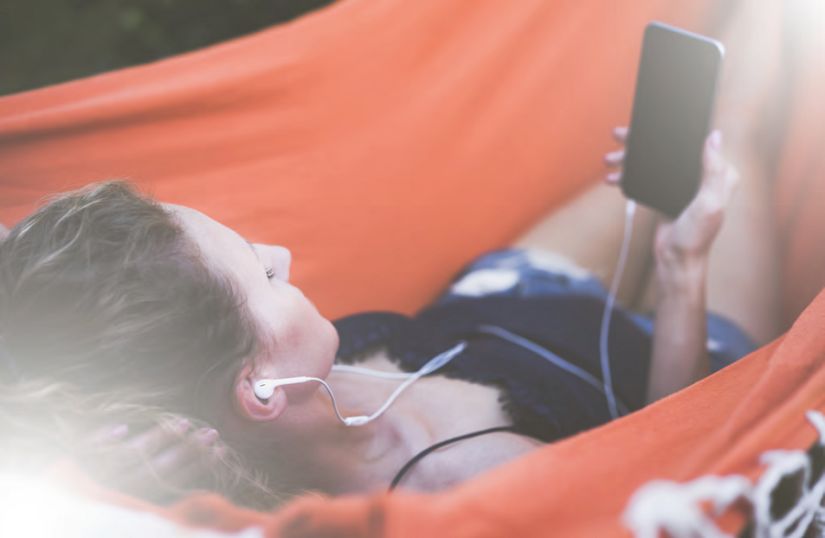Long working hours may be overwhelming and counterproductive, and Poland – with an average 41.1-hour week – is among the top five EU countries in terms of the number of working hours per week. The UK tops the ranking with 42.3 hours per week, followed by Cyprus and Austria. Denmark (37.8), Italy (38.8) and the Netherlands (39.0) on the other hand have the shortest working week.
British Trade Union Congress (TUC) has called on new technology, such as automation and robotics, to cut the working hours. Unions have even suggested that the UK should move to a four-day week. In other words, people would work one day less, but get paid the same.
London-based medical communication agency Synergy Vision has been one of the pioneers to introduce a shorter week. Since December staff moved to working 36 hours over four days instead of the previous 40-hour requirement. This means working one hour longer during the week to have a three-day weekend. “We think clients will benefit too, with longer working days increasing the time that teams are available,” the company said, emphasizing that the solution is a “win-win” situation. The trial, which gave employees some more spare time to buy Christmas gifts, will last for six months. During this period, the company plans to measure employees’ happiness and satisfaction.
In Poland, several companies, mainly international ones, have introduced half-day Fridays. At Viacom’s Warsaw office, for example, employees can put in an extra hour of work from Monday to Thursday during the summer and are then able to leave early on Friday and beat the weekend traffic.
Still, a four-day week has raised many employers’ concerns about getting work done. However, recent research by Hitachi Capital revealed that about 75 percent of British employees engage in non-work-related activities at work to make the day go faster. When tasks and deadlines are clearly set, a shorter week does not mean less work but better efficiency. In addition, more private time may help in coming up with fresh ideas. “Presenteeism is good for nothing and nobody, and I’ve long thought that overworking and unrealistic expectations on staff time runs counter to results,” founder of Radioactive PR Rich Leigh said. The company gives a regular free Friday to its 10 employees to improve mental resilience and productivity.
‘THE SLEEP REVOLUTION’
MetroNaps, a producer of chairs designed for napping at work, came up with the idea after seeing people falling asleep everywhere. The company’s hemisphere-shaped nap pod covers the upper part of the body with some space for the user to stretch out their legs. During a session, users may listen to some calming music. Even though sleeping in front of colleagues who are going about their daily tasks may seem controversial at first glance, a 20-minute nap proved to have a positive impact on concentration, mood and creativity. Nap pods now feature at Google’s headquarters, but the tech giant is not the only company with designated sleeping areas for its employees.
Arianna Huffington, co-founder of the Huffington Post, once collapsed from exhaustion at her workplace. After the incident she wrote a book: “The Sleep Revolution,” describing how a lack of sleep may affect our health, work and personal life. Arianna also emphasizes that addiction to technology disrupts sleeping patterns. Unsurprisingly, Huffington Post journalists are encouraged to take daily rest, as are the employees of athletics giant Nike, online shoe retailer Zappos and ice-cream maker Ben&Jerry’s.
In Finland, a co-working space Sofia Future Farm even hired a specialist to help its employees switch of from their daily tasks through simple exercises followed by a short snooze. “People are so happy after their nap. When it’s not too long, it is really refreshing,” instructor Mariko Pajalahti told News Now Finland.

BRING YOUR PET TO WORK
It is no secret that happy people are more efficient. Amazon, which has a smile on its logo, offered employees the chance to come to work accompanied by their pets. Every day is bring-your-dog-to-work day, Amazon wrote in its blog. The tradition started with a dog called Rufus, who became a surprisingly productive part of the team. Employees would use Rufus’ paw to click the computer mouse and open links to websites. “Our employees love bringing their dogs to work and love meeting their co-workers’ dogs,” Amazon “Woof Pack” Manager Lara Hirschfield said.
In total there are over 6,000 dogs “working” in Amazon offices. Whenever a customer lands on a 404 error page (the page cannot be found) it features a photo of a puppy suggesting a meeting with some of the company’s four-legged friends. Furry employees get access to snacks, and together with their owners, take part in corporate events such as Barktoberfest or a doggie Halloween contest. A pet-friendly environment improves collaboration between employees and makes work more fun.
Moving from a factory-like workday to a more autonomous working style with a focus on well-being is a challenge all businesses face. Almost two-thirds of employees believe flexible and remote working would increase their output, according to the State of Workplace Productivity Report. However, how fast the trend will evolve depends, among other things, on employers’ readiness to trust their staff to manage their own time.




















